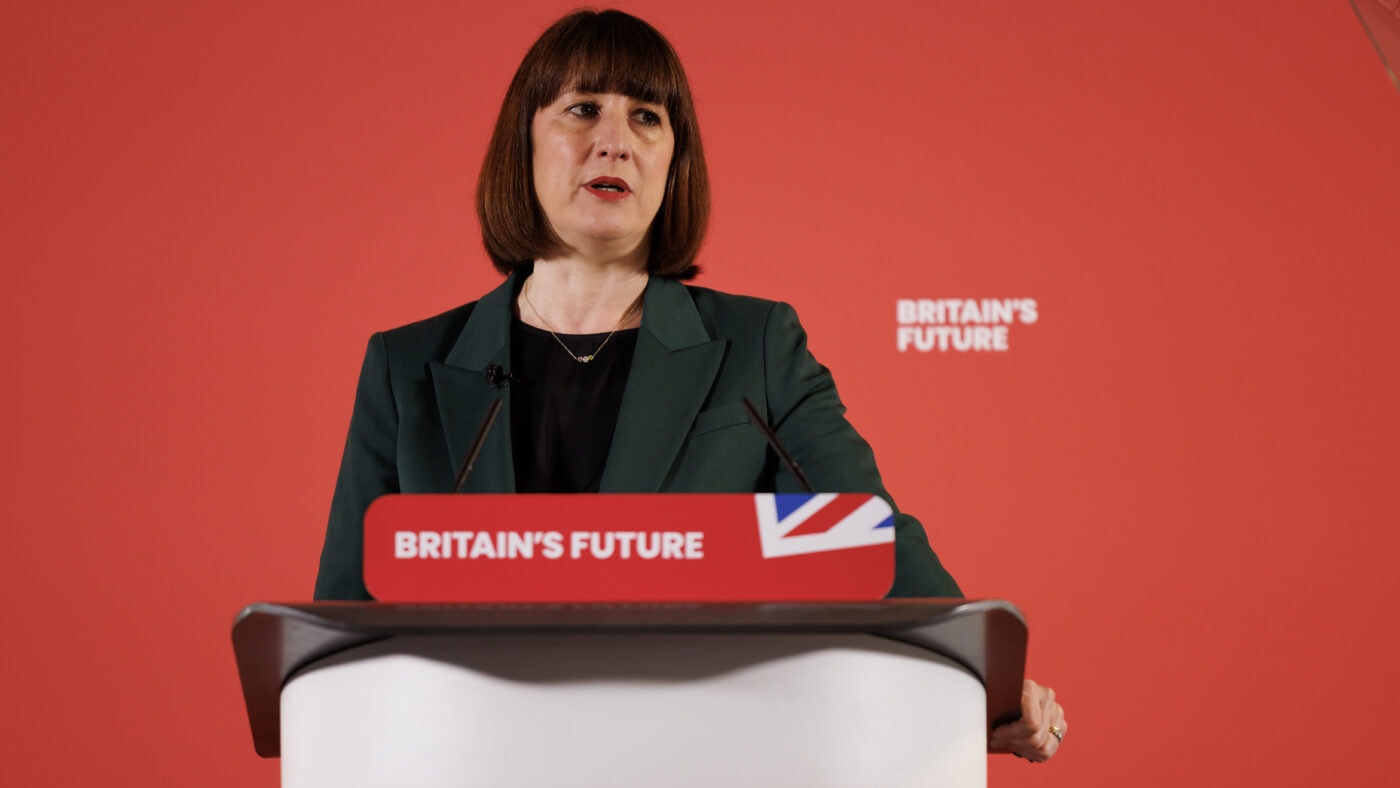Shadow Chancellor Rachel Reeves accused the government of ‘gaslighting the British public’ over the state of the economy in a major speech delivered earlier this week. Speaking to an audience in the City of London, the Labour frontbencher criticised Conservatives for taking a ‘victory lap’ ahead of data expected to show the UK has exited a technical recession.
May could be a crucial month for the Tories, with comparatively upbeat economic data from the Office for National Statistics and Bank of England expected to show a growing economy and falling inflation. Yet, in her speech, Reeves questioned the legitimacy of using ‘lines on a graph’ to measure the state of the economy at a time when ‘families are struggling with a mortgage’ and ‘working people [are] worse off.’
Reeves characterised the Conservatives’ positive messaging around the economy as ‘deluded’ and ‘out of touch with the realities on the ground.’ But it was the alternative proposals and solutions put forth by Reeves – and Labour – that proved ultimately delusional.
On the issue of public investment, Reeves claimed the National Wealth Fund would provide ‘catalytic public investment to unlock more than £20bn of private sector investment.’ While a nice idea in theory, the Fund has two major problems. First, the British state, like most states, has a track record of making particularly poor industrial investments, as evidenced most recently by the £200m paper loss from the bailout of satellite company OneWeb.
Second, it is all too easy to imagine the Fund being used to prioritise investments of dubious value for the taxpayer in pursuit of Labour’s divisive, identitarian social goals – such as those in its proposed Race Equality Act. At a time when companies such as ASOS and Twitter are abandoning equality, diversity and inclusion targets to reprioritise maximising shareholder value, Labour’s National Wealth Fund will be used to coercively reshape society through business regulation. At large, the Fund is yet another example of Labour’s delusional belief in big government’s ability to solve the nation’s problems, when in reality, it is more likely to make inefficient investments, cost the taxpayer and stifle economic growth.
Then there is the problem of overreaching labour laws that will reduce investment and competitiveness, damaging small businesses (for whom compliance is more burdensome) in particular. In her speech, Reeves pledged that Labour would introduce their New Deal for Working People in the first 100 days of the next parliament. With the bill, a Labour administration would curb zero-hour contracts (having previously pledged to ban them), introduce ‘day one’ workers’ rights and grant employees the ‘right to switch off’ outside work hours.
Labour’s New Deal for Working People would be the biggest ‘upgrade’ of workers’ rights in a generation if implemented. But not only will it hurt businesses and employers, it will also disadvantage employees who, for example, value flexibility and to whom zero-hour contracts may be beneficial. In her speech, Reeves attempted to misrepresent the implications of the legislation by claiming it would be good for the economy, when it is more likely to lower investment, increase business costs, and harm economic growth and productivity.
On the issue of green energy, Reeves proudly championed Labour’s new creation, ‘Great British Energy’ calling it a ‘new national energy champion.’ The GB Energy plan is a replacement for the £28bn green investment pledge that was abandoned by Labour earlier this year, but is equally ambiguous in scope. It is unclear whether the proposed public energy company will be a vehicle for driving investment and de-risking new technologies, or whether it will operate as an energy generator and compete for contracts against other renewable energy companies. The ambiguity around the plan, coupled with the time it will take to be implemented, suggests Labour’s promise to achieve clean energy by 2030 is an empty one.
Perhaps the one positive part of Reeves’ speech was her claim to place ‘planning reform at the very heart of [Labour’s] economic and political agenda.’ Like the Conservatives, Labour have acknowledged the grave need for more housing and have pledged to build 1.5m homes over the next Parliament. The focus on planning reforms is a hopeful sign that Labour is ready to fix the problems they created in 1947 with the introduction of the Town and Country Planning Act, which has led to a planning system that is overregulated and bureaucratic; but while the promises sound good on paper, Labour’s track record of solving problems that require less, not more, regulation is bleak.
Throughout her speech, Reeves accused the government of being ‘out of touch’ with the British public. She claimed that Labour, unlike the ‘deluded’ Tories understood the needs of families, working people and pensioners, and that Labour’s economic policies were the solution to ‘14 years of Conservative economic failure.’
But by obfuscating certain facts, such as the practicalities of the GB Energy plan, and overegging others, such as the Tories’ unique involvement in the housing crisis, Reeves committed the offense she had accused the Conservatives of: she gaslit the British public into believing a larger state, more regulation and more red tape would solve Britain’s economic woes. In reality, these policies would not ‘start a new chapter for Britain’s economy,’ they would rewind the pages to one that almost caused its collapse.
Click here to subscribe to our daily briefing – the best pieces from CapX and across the web.
CapX depends on the generosity of its readers. If you value what we do, please consider making a donation.


